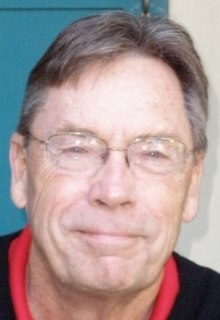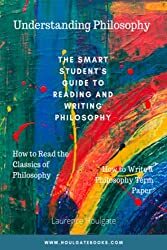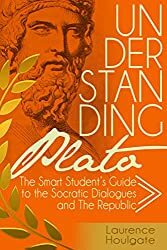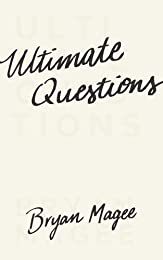John G. Messerly's Blog, page 26
April 27, 2022
The Real You
One of my first encounters with philosophy came when I was about 15 years old and was watching a PBS video featuring Alan Watts (1915 – 1973). I wasn’t philosophically sophisticated enough then to understand much of what he was saying, but I do remembering thinking he was cool. He had a beard, drank tea and seemed so … philosophical.
Alan Watts was a British born philosopher, and one of the first writers to popularize Eastern thought, particularly Zen Buddhism, for a Western audience. One of the first philosophy books I ever read as a teenager was, The Book: On the Taboo Against Knowing Who You Are by Watts. It asked one of the most fundamental questions we can ask: who am I?
Now we may think we know the answer to this question. For example, we may believe that our individuality ends with our bodies. But Watts asked, why do we end where our bodies do? After all, our skin is porous and interacts with the environment. We can’t survive for more than a few minutes without the air, so why isn’t the air as much a part of us as our legs or arms? And there is no breathable air without plants, so why aren’t they a part of us? In fact, our existence depends on the earth’s ecosystem and the sun. Following this line of thinking, we ultimately depend on the entire universe for our existence.
So perhaps we aren’t egos inside bags of skin or even separate egos at all. Maybe we are like windows or apertures or vortexes through which the universe is conscious of itself for a brief moment. While we are fond of saying things like “I came into this world,” isn’t it more accurate to say, “I came out of the universe?” Don’t people come out of the universe like leaves come out of trees or waves come out of oceans? Or as Watts asks, doesn’t the universe just “people?”
Such questions are not merely academic. If we think we are separate from the world, then it is more likely to feel like something alien to us that we must confront. But if we see that we came out of the universe, then we are more likely to treat the universe as our home. We will see that the environment that surrounds our bodies is as much a part of us as our heart or lungs. If we despoil the environment, we despoil ourselves; if we destroy the environment, we destroy ourselves. So perhaps we are the universe looking at itself from billions of perspectives. In fact, couldn’t we say that, in some sense, we are the universe?
April 24, 2022
Star Trek “The Inner Light”

THE PAST
We are connected with the distant past and the faraway future. The atoms in our body, all cooked inside ancient stars, link us back to the beginnings of time; our evolutionary history imprints our minds, behaviors, and beliefs; and culture, an outgrowth of our chemistry and biology, is itself a creation of the past. The past is embedded within and surrounds us as a shell. Every existent thing, from stars to genes to culture, is the result of something that happened in the past.
THE FUTURE
But culture allows us to escape from and transcend the past. Science, art, music, religion, and all the elements of culture introduce novelty; the arrival of culture transforms. Like a child who progressively constructs new numbers—negative, irrational, and imaginary—we too abstract from the given and leap beyond, fashioning the unconventional in the process. Through our imagination and creativity, along with our care and concern, we connect with the future; we create the future now; we live in the future now. And if anything in this whole world matters, it is this. We carry the past and the future inside us; we are the past and future. And surely there is something profound in this.
THE INNER LIGHT
One finds a moving tribute to these ideas in the Star Trek The Next Generation episode: “The Inner Light.” In it, a probe scans the ship and an energy beam renders Captain Picard unconscious. He wakes to find himself living on the planet Kataan with a loving family and friends who tell him he is Kamin, an iron weaver recovering from a feverish sickness. Picard talks of his memories on the Enterprise, but his wife Eline and their close friend Batai try to convince Picard that his memories were only dreams. Slowly he acclimates himself into their society. Picard begins living out his life as Kamin in the village of Ressik, starting a family with Eline, and learning to play his beloved flute.
As the years pass, he begins to notice that the planet is suffering a worldwide drought owing to increased radiation from the planet’s sun. He sends reports to the planet’s leaders, who seem to ignore his concerns. Ultimately Kamin confronts a government official who admits that the government already knows this but wish to keep it a secret to avoid panic. The official points out to Kamin that they do not possess the technology needed to evacuate even a small colony’s worth of people before their planet is rendered uninhabitable.
Years pass and Kamin grows old, outliving his wife. Kamin and his daughter Meribor continue their study of the drought. They find that it is not temporary; extinction of all life on the planet is inevitable. One day, while playing with his grandson, Kamin is summoned by his adult children to watch the launch of a rocket, which everyone seems to know about accept him. Here are the final moments of the episode:
The past lives in the present, which creates the future, which represents our hopes.
April 20, 2022
Wellsprings of Work by Samuel Halpern
[image error] I recently became aware of a new book, Wellsprings of Work: Surprising Sources of Meaning and Motivation in Work. The book was written by Samuel Halpern, whose nearly 50-year career in investing and lawyering brings a unique perspective to finding meaning and motivation in work.
I recently became aware of a new book, Wellsprings of Work: Surprising Sources of Meaning and Motivation in Work. The book was written by Samuel Halpern, whose nearly 50-year career in investing and lawyering brings a unique perspective to finding meaning and motivation in work.
Halpern’s discussion of work touches on philosophical themes like transcendence and eternality as well as relating work to Buddhist and Hindu perspectives. He argues, among other things, that many forms of work proceed from our human awareness of mortality. For instance, in his concluding chapter, he states,
Writing a poem, building a pyramid, joining a cause, supporting your family, rooting for your team, fighting for your nation, praying for an afterlife, serving others—in all cases, consciously or not, we seek something beyond our transient, limited selves, something more universal and enduring.
I’ve always been interested in the topic of meaningful work and have written a lot about the topic. This is one of the most philosophical discussions of work, and from a successful business person, that I’ve ever found. It comes highly recommended.
To buy the book click on the book cover image above or for more information about the book go to: http://www.wellspringsofwork.com
April 18, 2022
Biographical documentary of Zen Master Thich Nhat Hanh
A friend sent the above documentary to me and I recently watched it. I was truly moved by the story of Thích Nhất Hạnh life. The first thing I noticed was the contrast between a true seeker of peace and love as compared with the hypocrites who claim to be religious but who are in truth fanatical ideologues, full of hubris, spite, and anger. So many want to control other people but they have never tried to transform themselves. This contrast between a really good person and the masses is so sharp, and the gap so wide, that it is hard to understand how people can’t tell the difference.
There is so much more to say but I let the beautiful documentary speak for itself.
April 16, 2022
For Those Who Love Socrates and Plato- A Final Reminder
A Holiday Gift
Understanding Plato
the award-winning guide to Plato’s Socratic Dialogues and Republic
will be offered free of charge
Saturday and Sunday
April 16 – 17 on Amazon.com
This offer is for the eBook edition only. It can be immediately downloaded and is readable on any device.
[image error]
Understanding Plato is primarily a study guide for beginning philosophy and political science students, not a monograph for advanced scholars. Although it was written as a companion to Plato’s dialogues, it not only gives clear explanations of his main ideas, it also teaches students how to think critically about philosophical problems. Each chapter concludes with a set of questions for thought and discussion.
Please go to the Amazon.com detail page for Understanding Plato, look at the Table of Contents, read a few pages and some of the book reviews. If you like what you see, get your copy and please tell students, friends and colleagues about this offer.
Understanding Plato is free for two days only: beginning April 16 at 12:01 a.m. Pacific Daylight Time and ending on April 17 at 11:59 p.m. PDT
If you are wary about links, you can get to the offer page by doing an Amazon or Google search using the words Houlgate, Understanding, Plato, Kindle.
Listen to the Understanding Plato podcast series on any one of several stations — for example, Apple, Spreaker, or Podcast Addict. Sit back with your copy of the book and follow along as Professor Houlgate reads his guide to Plato’s Socratic dialogues and Republic.
Understanding Philosophical Classics
[image error]
 [image error]
[image error]
 [image error]
[image error]
Join us on our members app to stay updated and keep in touch.
[image error] Download & Join
April 13, 2022
Benatar’s “The Human Predicament”
[image error] [image error]
I have previously written about the philosopher David Benatar’s anti-natalism. Oxford University Press has published another of his books [image error]The Human Predicament: A Candid Guide to Life’s Biggest Questions. Here is a brief summary of the book followed by a few comments.
Benatar’s book addresses the biggest questions such as whether our lives are meaningful or worth living, and how we should respond to our impending death. He warns his readers that he won’t provide comforting answers to these questions. Instead, he argues
that the (right) answers to life’s big questions reveal that the human condition is a tragic predicament—one from which there is no escape. In a sentence: Life is bad, but so is death. Of course, life is not bad in every way. Neither is death bad in every way. However, both life and death are, in crucial respects, awful. Together, they constitute an existential vice—the wretched grip that enforces our predicament. (1-2)
The rest of the book explains this predicament. The basic structure of the argument goes something like this. While our lives may mean something to each other, life is meaningless from a cosmic perspective; life has no grand purpose. “The universe was indifferent to our coming, and it will be indifferent to our going.” (200) Whatever little meaning our lives have is fleeting, and all human achievements ultimately vanish. In the end, it will all be as if we never were. This doesn’t imply that life has no meaning whatsoever, but “that meaning is severely limited.” (201)
However, even if our lives have some little meaning they are poor in quality and involve endless suffering. Some lives are better or luckier than others but in the long run, none of us fare well. It’s not that every moment is horrible but that sooner or later life will probably deal us some terrible fate. Still, Benatar doesn’t conclude that since life is bad death is good. Instead, he argues that death is bad too. “Death does nothing to counter our cosmic meaninglessness and usually (though not always) detracts from the more limited meaning that is attainable.” (2-3)
Benatar doubts claims of immortality, even scientific ones, and also argues that immortality may not be a good thing. He grants that having the option of immortality would be better than not having it, but doubts that we will ever have that option. And while suicide doesn’t solve the human predicament it is sometimes the best choice. Yet, even when it is rational, suicide is tragic because it both affects others and annihilates an individual. Thus the prescription to “just kill yourself if it’s so bad” fails to appreciate our existential predicament.
This human predicament is not the product of a conscious agent, but of blind evolutionary forces. Yet human consciousness worsens the situation because humans “inflict colossal quantities of suffering and death on other humans. The deceits, degradations, betrayals, exploitations, rapes, tortures, and murders …” (203) However, while we should be pessimistic about the possibility of cosmic meaning, we can still obtain limited meaning. And this implies that
One should not desist from loving one’s family, caring for the sick, educating the young, bringing criminals to justice, or cleaning the kitchen merely because these undertakings do not matter from the perspective of the universe. They matter to particular people now. Without such undertakings, lives now and in the near future will be much worse than they would otherwise be. (205)
Naturally, people resist pessimistic views of life. Furthermore, they try to undercut them by claiming that adherents to pessimism are grouchy or pathological individuals. While Benatar admits these adjectives describe some pessimists, they don’t describe them all. For many pessimism is an authentic response to an understanding of the human predicament.
So how then should we respond to the human predicament? First, we should cease having children and thereby perpetuating the cycle of suffering. But as we already exist, what can we do about our situation? Suicide might be a rational response, but better to create some meaning in our lives.
An even better response would be to adopt a pragmatic optimism that recognizes the human predicament but uses optimism to cope. This would be most successful if one actually believed in an optimistic view. But suppose you only accept optimism as a kind of placebo? The optimist might recognize the horror of the human predicament but try to keep this horror at bay and remain optimistic. However, Benatar worries that this compartmentalization will be hard to maintain—to acknowledge the bleakness of life and yet remain optimistic. If you can’t maintain the correct balance here, you might become overly optimistic or revert back to pessimism.
The best coping mechanism would be to adopt pragmatic pessimism. Here you accept a pessimistic view of life without dwelling on it and busy yourself in projects that enhance and create terrestrial meaning. In other words “It allows for distractions from reality, but not denials of it. It makes one’s life less bad than it would be if one allowed the predicament to overwhelm one to the point where one was perpetually gloomy and dysfunctional … ” (211)
Benatar admits that the distinction between pragmatic optimism and pessimism as well as between denial and distraction are ambiguous. They exist midway in a continuum between “deluded optimism and suicidal pessimism.” (211) Like terminally ill patients we should confront our imminent death but not be so obsessed with it that we don’t spend time with our friends and family. So, while we can ameliorate our predicament somewhat, doing so “is the existential equivalent of palliative care.” (7)
In the end, the best we can do according to Benatar is to be the kind of “pessimists who have the gift of managing the negative impact of pessimism on their lives.” (213)
Reply – There is much to say about this book but let me mention a few things in passing. I believe that life is bad in many ways and so is death. The solution is to make life better and eliminate death. It may indeed be better if nothing had ever existed—assuming nothingness is even possible—but I just don’t know how to evaluate that claim. It may also be that something like Schopenhauer’s idea of blind will drives us and reason actually recommends putting an end to consciousness. But again I just don’t know how to evaluate such claims.
Right now I enjoy my life, but then I’m a privileged white male in a first-world country with a roof over my head, food in my refrigerator, access to medical care, and the recipient of a wonderful education. I certainly understand that for many others life isn’t worth living and this fills me with irredeemable sadness. I wish I could say more.
The other thing I’d say is that the pragmatic response may be best. This aligns well with the kind of attitudinal and wishful hope that I’ve written about previously. The main difference in my approach is that I begin with ignorance about answers to the big questions whereas Benatar claims that the answers to life’s big questions are pessimistic ones. Starting from my ignorance I argue that, assuming we have free choice, we might as well be optimists as that is pragmatically useful. As I’ve said many times this is no answer but a way to live. In the end, my own attitude is very close to Benatar’s.
April 10, 2022
Will The Wealthy Leave Us All Behind?
[image error]
Robots revolt in R.U.R., a 1920 play.
Professor and media theorist Douglas Rushkoff penned an article that went viral a few years ago, “Survival of the Richest.” It outlines how the super-wealthy are preparing for doomsday. Here is a recap followed by a brief commentary.
Rushkoff was invited to deliver a speech for an unusually large fee, about half his academic salary, on “the future of technology.” He expected a large audience but, upon arrival, he was ushered into a small room with a table surrounded by five wealthy men. But they weren’t interested in the future of technological innovation. Instead, they wanted to know things like where they should move to avoid the coming climate crisis, whether mind uploading will work and, most prominently, how to “maintain authority over [their] security force after the event?”
The Event. That was their euphemism for the environmental collapse, social unrest, nuclear explosion, unstoppable virus, or Mr. Robot hack that takes everything down.
This single question occupied us for the rest of the hour. They knew armed guards would be required to protect their compounds from the angry mobs. But how would they pay the guards once money was worthless? What would stop the guards from choosing their own leader? The billionaires considered using special combination locks on the food supply that only they knew. Or making guards wear disciplinary collars of some kind in return for their survival. Or maybe building robots to serve as guards and workers — if that technology could be developed in time.
That’s when it hit me: At least as far as these gentlemen were concerned, this was a talk about the future of technology. Taking their cue from Elon Musk colonizing Mars, Peter Thiel reversing the aging process, or Sam Altman and Ray Kurzweil uploading their minds into supercomputers, they were preparing for a digital future that had a whole lot less to do with making the world a better place than it did with transcending the human condition altogether and insulating themselves from a very real and present danger of climate change, rising sea levels, mass migrations, global pandemics, nativist panic, and resource depletion. For them, the future of technology is really about just one thing: escape.
Rushkoff continues by expressing his disdain for transhumanism,
The more committed we are to this [transhuman] view of the world, the more we come to see human beings as the problem and technology as the solution. The very essence of what it means to be human is treated less as a feature than bug. No matter their embedded biases, technologies are declared neutral. Any bad behaviors they induce in us are just a reflection of our own corrupted core. It’s as if some innate human savagery is to blame for our troubles.
Ultimately, according to the technosolutionist orthodoxy, the human future climaxes by uploading our consciousness to a computer or, perhaps better, accepting that technology itself is our evolutionary successor. Like members of a gnostic cult, we long to enter the next transcendent phase of our development, shedding our bodies and leaving them behind, along with our sins and troubles.
The mental gymnastics required for such a profound role reversal between humans and machines all depend on the underlying assumption that humans suck. Let’s either change them or get away from them, forever.
It is such thinking that leads the tech billionaires to want to escape to Mars, or at least New Zealand. But “the result will be less a continuation of the human diaspora than a lifeboat for the elite.”
For his part, Rushkoff suggested to his small audience that the best way to survive and flourish after “the event,” would be to treat other people better now. Act to avoid social instability, environmental collapse and all the rest rather than to figure out how to deal with them in the future. Their response?
They were amused by my optimism, but they didn’t really buy it. They were not interested in how to avoid a calamity; they’re convinced we are too far gone. For all their wealth and power, they don’t believe they can affect the future. They are simply accepting the darkest of all scenarios and then bringing whatever money and technology they can employ to insulate themselves — especially if they can’t get a seat on the rocket to Mars.
But for Rushkoff:
We don’t have to use technology in such antisocial, atomizing ways. We can become the individual consumers and profiles that our devices and platforms want us to be, or we can remember that the truly evolved human doesn’t go it alone.
Being human is not about individual survival or escape. It’s a team sport. Whatever future humans have, it will be together.
Reflections – I don’t doubt that many wealthy and powerful people would willingly leave the rest of us behind, or enslave or kill us all—a theme endorsed by Ted Kaczynski in The Unabomber Manifesto: Industrial Society and Its Future[image error]. But notice that these tendencies toward evil existed before advanced technology or transhumanist philosophy—history is replete with examples of cruelty and genocide.
So the question is whether we can create a better world without radically transforming human beings. I doubt it. As I’ve said many times our apelike brains—characterized by territoriality, aggression, dominance hierarchies, irrationality, superstition, and cognitive biases—combined with 21st-century technology is a lethal combination. And that’s why, in order to survive the many existential risks now confronting us and to have descendants who flourish, we should embrace transhumanism.
So while there are obvious risks associated with the power that science and technology afford, they are our best hope as we approach many of these “events.” If we don’t want our planet to circle our sun lifeless for the next few billion years, if we believe that conscious life is really worthwhile, then we must work quickly to transform both our moral and intellectual natures. Otherwise at most only a few will survive.
Still, I admit to being uncertain about all this. I just don’t know the best way to proceed into the future. I long for a better world, for better lives, for more happiness and less suffering but will such a future unfold? I just don’t know and feel so powerless to make it all turn out well. Worst of all I know that my own shortcomings are part of the problem.
April 9, 2022
Free Book!

Laurence Houlgate, Ph.D., is an Emeritus Professor of Philosophy at California Polytechnic State University, San Luis Obispo where he was a beloved colleague and teacher. He wrote the guides after his retirement in order to keep a promise to his former students.
I have read parts of all of his study guides and the voice of a good teacher and scholar can be heard on every page. I highly recommend them. Just click on the picture to be taken to any of the low-cost guides. (Also, Professor Houlgate has a great philosophy blog.)
Finally, let me say that the modern philosophers above are some of my favorite thinkers in the Western tradition. Well worth becoming acquainted with them if you are not already.
April 6, 2022
Review of Bryan Magee’s, “Ultimate Questions”
[image error]
Bryan Magee (1930 – 2019) has had a multifaceted career as a professor of philosophy, music and theater critic, BBC broadcaster, public intellectual, and member of Parliament. He has starred in two acclaimed television series about philosophy: Men of Ideas (1978) and The Great Philosophers (1987). He is best known as a popularizer of philosophy. His easy-to-read books, which have been translated into more than twenty languages, include:
Confessions of a Philosopher: A Personal Journey Through Western Philosophy from Plato to Popper;
The Great Philosophers: An Introduction to Western Philosophy;
Talking Philosophy: Dialogues with Fifteen Leading Philosophers ;
;
Philosophy and the Real World: An Introduction to Karl Popper;
The Story of Philosophy: 2,500 Years of Great Thinkers from Socrates to the Existentialists and Beyond ;
;
and Men of Ideas.
Shortly before he died he wrote Ultimate Questions, a summary of a lifetime of thinking about “the fundamentals of the human condition.” Its basic theme is that we know little about the human condition since reality comes to us filtered through the senses and the limitations of our intellect and language. The most honest response to this predicament is agnosticism.
Magee begins by considering that “What we call civilization has existed for something like six thousand years.” If you remember that there have always been some individuals who have lived a hundred years this means that “the whole of civilization has occurred with the successive lifetimes of sixty people …” Furthermore, “most people are as provincial in time as they are in space: they huddle down into their time and regard it as their total environment…” They don’t think about the little sliver of time and space that they occupy. Thus begins his meditation on agnosticism.
Furthermore, we are ignorant of the knowledge of our ultimate nature: “We, who do not know what we are, have to fashion lives for ourselves in a universe of which we know little and understand less.” Yet this situation doesn’t lead Magee to despair. Instead, he calls for “an active agnosticism,” which is “a positive principle of procedure, an openness to the fact that we do not know, followed by intellectually honest enquiry in full receptivity of mind.” If he had to choose a tag he says, it would be “the agnostic.”
However most people can’t live with uncertainty, with pieces missing from the jigsaw puzzle as Magee puts it, and they replace the unknown with religion. But religion “is a form of unjustified evasion, a failure to face up to the reality of ignorance as our natural and inevitable starting-point.” The challenge of life is to live and die in a world that we don’t understand “without either … denying the mysteriousness of it or … grasping at supernatural explanations.”
Yet he takes comfort in what he calls the “us-dependent,” rather than the independent or isolated: “One essential aspect of our situation is that we are social creatures, indeed social creations: each one of us is created by two other people. If we are not cared for by them or someone taking their place, we die. Our existence and our survival both require active involvement by others.”(What a beautiful rejoined to all those who banter on and on about being self-made men. Those who were born on third base and think they hit a triple.)
In the broadest light, the book attempts to reply to the assertion: “I know that I exist, but I do not know what I am.” But Magee, after decades of searching, replies that none of us know the answers to the big questions. As for faith, Magee answers firmly: “I can think of no other context in which people are commended for the firmness of beliefs for which there is little or no evidence.” Magee accepts that some need the comfort of religion because, for example, they can’t accept their own death, and he leaves such people undisturbed. “But I do regard such people as no longer committed to the pursuit of truth.”
Magee believes contra Hume that he has a self “but I am unable to fathom its inner nature, and I have no idea what happens to it when I die.” But he rejects the view that being unable to answer ultimate questions implies that asking them is worthless, inasmuch as some understanding of ourselves and the world can still be attained. “We may not know where we are, but there is a world of difference between being lost in daylight and being lost in the dark.” Still, none of this implies relativism, as reason and evidence support some ideas and theories over others. Some things are more likely to be true and rational people proportion their assent to evidence.
As for death, “the prospect of permanent oblivion” is painful. In death, the magic of the world and our consciousness of it vanishes. Nonetheless, the brave face this truth without comforting themselves with false narratives. Magee says that at the moment of death “I may then be in the position of a man whose candle goes out and plunges him into pitch blackness at the very instant when he thought he was about to find what he was looking for.”
These are the words of a brave and fearless intellect. What a wonderful book.
April 3, 2022
Review of Michael Bess’, Our Grandchildren Redesigned: Life in the Bioengineered Society of the Near Future
[image error]
Vanderbilt University’s Michael Bess has recently written Our Grandchildren Redesigned: Life In The BioEngineered Society Of The Near Future. The first part of the book introduces the reader to the technologies that will enhance the physical, emotional, and intellectual abilities of our children and grandchildren: pharmaceuticals, bioelectronics, genetics, nanotechnology, robotics, artificial intelligence, synthetic biology, and virtual reality.
In the second part of the book, Bess sets out the pro and cons of enhancement. The arguments against bioenhancement are that doing so: 1) plays god or interferes with nature; 2) destroys the qualities that make us human; 3) subverts dignity by commodifying human traits; 4) displays hubris and robs life of its meaning; and 5) rejects the limitations that define humanity. In these multiple ways enhancement leads to disaster. The arguments for bioenhancement are that doing so: 1) continues the long historical process of controlling ourselves and our world; 2) expresses our natural desires for new capabilities and richer experiences; 3) rejects the legacy of blind evolution and advocates directing the evolutionary process; 4) will reduce suffering and other constraints on our being; and 5) pursues our potential to be more than we are now, which is what gives life meaning.
Bess argues that the differences between the pro and anti-enhancement camps reflect the tension between conservative and romantic reactions to the Enlightenment. Thinkers like Voltaire, Diderot, Locke, and Kant emphasized progress and perfectibility combined with an optimism about human social and moral evolution. Progress could continue indefinitely, as humans used reason to unlock their inner potential. But conservatives like Edmund Burke saw human nature as limited and more fixed. Instead of progressive social evolution, they saw recurring patterns of greed and violence. (The motive for conservatism that Bess omits in my view, is religious opposition to future technologies.)
Bess suggests a via media between these two visions. Change, innovation and novelty characterize human nature as does the desire for continuity, preservation, and order. Wisdom combines both: “hope … tempered by humility … an attitude of openness to the future, chastened by the sobering lessons of past experience. The resulting moral maxim would be: embrace innovation, but proceed critically, incrementally, and cautiously in adopting it; explore new possibilities, but remain acutely cognizant of the historical track record as you go.” Bess refers to his view as “chastened optimism.” (78)
This leads to various forms of enhancement considered on a case-by-case basis. But what moral framework should we use to make these assessments? SInce human beings differ regarding their moral beliefs, Bess argues that the best we can do is combine the ancient concept of human flourishing with today’s positive psychology and the “capabilities approach” in economic theory. Together these two fields have reached a consensus about the personal traits and social conditions that contribute to human flourishing, and Bess believes that this provides a framework for assessing enhancement technologies. The key factors in human flourishing from the individual perspective are: security; dignity; autonomy; personal fulfillment; authenticity; and pursuit of practical wisdom. From a societal perspective, the key factors are: fairness; interpersonal connectedness; civic engagement; and transcendence. This framework helps us answer questions about whether a particular enhancement will or will not contribute to human flourishing.
Other questions will also arise. Who gets enhanced? Will enhancements create a new caste system? What of those who reject enhancement? Bess thinks it is unlikely that first-world democracies would tolerate a biological class system, and that violence may accompany the desire for universal access to enhancement technologies. As for those who reject these technologies, it is unclear whether the non-modified will be able to live peaceably beside the modified. But when large numbers of individuals choose to adopt bioenhancement, there will be tremendous pressure on the non-modified humans to augment their own capabilities, or they will be at a distinct disadvantage. And, given enough time, the modified and non-modified will be different species.
In the third part of the book explores the more ethereal effects enhancements will have on individual humans. Questions will arise like: Do pharmaceuticals enhance our experiences by disconnecting us from reality? Do enhancements mechanize the self by eliminating the messy and unpredictable aspects of human experience? And, if the answer to such questions is yes, then are enhancements worth the price?
Similar questions arise regarding moral enhancement. For example, suppose we can give people a “morality pill” to increase the likelihood that they will make ethical choices. Such a pill wouldn’t have to completely override free will; rather it could increase the proclivity toward altruism. Bess says that we should reject this pill because intention is a large part of what makes an act moral, and the pill interferes with intentions. He believes that free will is worth the price of whatever negative outcomes follow from it. I think that this is a very large price to pay for an idea, free will, that may be illusory anyway. Still, Bess maintains that moral enhancement, to the extent it undermines free will, removes moral meaning from the world. Personally, I wouldn’t care about discarding the idea moral meaning if a better world results. No doubt I am revealing my utilitarian preferences.
Other problems relating to human identity include: the possible monitoring and sharing of our intimate thoughts; the development of better virtual reality; and the extension of human lifespans. In addition, enhancement technologies will bring about unforeseen consequences. What will be the future of sex, food, privacy, the arts, and war? No doubt the future will be weird in ways that are, at present, inconceivable. But Bess thinks we should be a scared. “If you think your iPhone is a transformative device, just wait til they turn on your brain-machine interface.” (174)
The last section of the book explores the ethical questions raised by the pursuit of human enhancement. How far should we go with enhancements? What modifications should embrace and which should we reject? What is generally better, modest or radical enhancements? What sorts of creatures do we want to become, and what sort do we to avoid becoming? Will we even have a say in determining such matters?
Bess doubts that we can “just say no” to these technologies, for even if we did some would pursue them in a black market or in countries more receptive to such technologies. Thus complete relinquishment of enhancement technologies is a non-starter. So the real question is whether we want to pursue enhancements at a low-level, increasing today’s capabilities; at a mid-level, capabilities beyond today’s levels but still recognized as human; or at a high level, capabilities we would classify us as transhuman or posthuman.
Bess especially fears transhumanism. He argues that you cannot have a radically expanded cognitive architecture without transforming your identity. Such a consciousness would no longer be anything like the consciousness it used to be. Thus, to transform ourselves in this manner would be to terminate ourselves and become a new kind of sentient being. But we should not do this, Bess says, because of the potential for posthumans to harm others. “Until we know a great deal more than we do today about what such entities would be like … it would be the height of folly and irresponsibility to proceed with the project of creating them … The potential rewards are too uncertain, and the risks are far too great.” Furthermore, the societal consequences of some of us becoming posthuman might tear the fabric of civilization apart.
Here I think Bess’ arguments are less convincing. The transhumanist admits that the human species, as it is, must die in order for something better to replace it. But, the transhumanist would say, this is worth the risk because without radical transformation the species will almost certainly die out. Given the many extinction scenarios that accompany our journey into the future, the prospects for our continued existence seem meager. In that case, even huge gambles are justified. And, if we turn our back on enhancements, we will almost certainly go extinct. The rewards of enhancements may be uncertain, but the risks of pursuing them are no greater than if we do nothing or only do a little.
Bess admits that the temptation to pursue radical enhancements will be great, but he counsels restraint. He hopes that as we adapt to low-level changes, we can gradually relax the constraints on mid-level and high-level ones. He admits that enforcing these moratoriums would be difficult, and international cooperation would be hard to achieve, but arms control provides a model of how this might be accomplished. Still, Bess says, trying to control technologies that may spell our doom is worth the effort.
Bess’ book is one of the most thoughtful meditations on the future that I have read. Moreover, the book is carefully and conscientiously crafted and meticulously argued. He is also impartial, giving a fair hearing to contradictory arguments, and wrestling fairly with the ideas as he encounters them. In the end, I would situate Bess’ views a bit toward the conservative side of the argument. While he is optimistic that we can muddle our way through the coming storm, which demands a large dose of optimism indeed, I sense more fear than excitement in his words. I think he overestimates how good life is now, and underestimates how good it could be.
Bess concludes that in the future: “the most potent deed of all will still take the form of a smile, a silent nod of empathy, a hand gently laid on someone’s arm. The merest act of kindness will still remain the Ultimate Enhancement.” This is touching, and it reminds us that remaking the world demands more than just engineering. But Iet us hope that Bess doesn’t mean this literally. Let us hope that in the future we can do more for human suffering than smile, nod, and touch. Let us hope that someday there will be more than just kindness to ameliorate the reality that our descendants may find themselves in.












